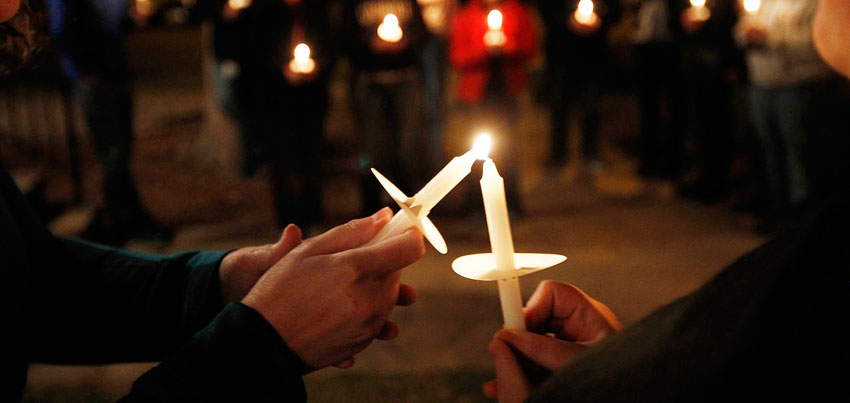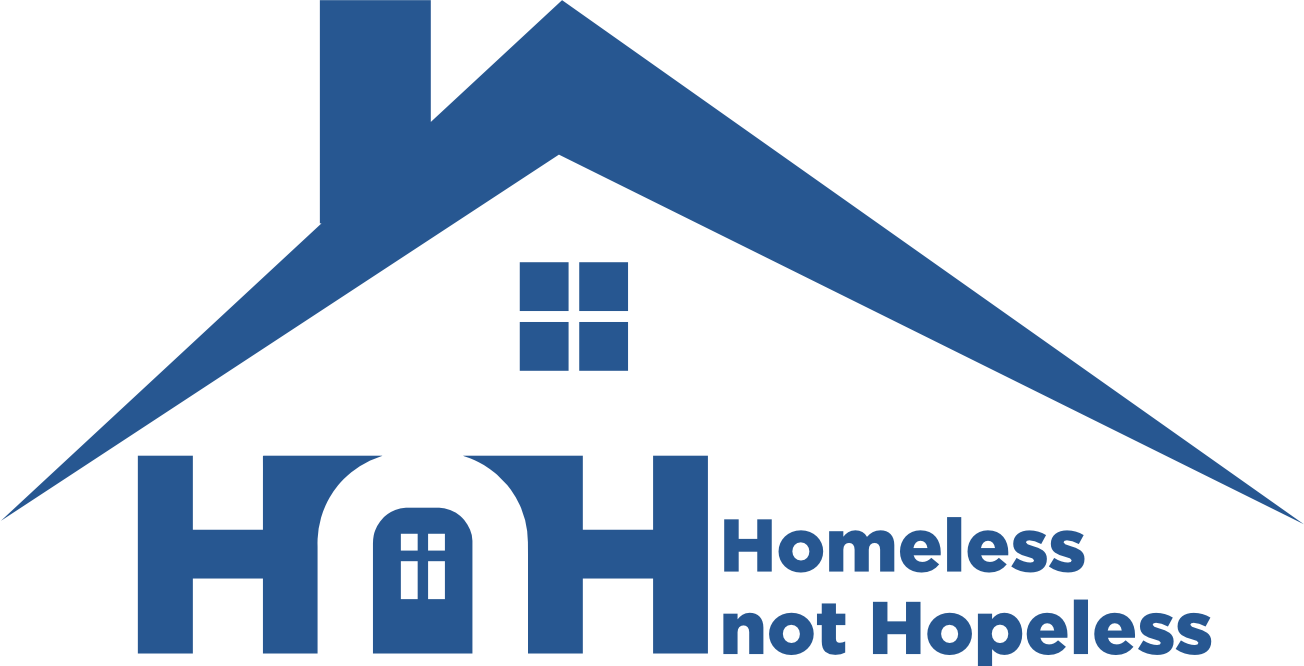HnH’s Mission
HnH provides housing & life skills for homeless individuals in a supportive community setting that promotes self-worth in a sober & safe environment. Our education program focuses on helping residents transition to independent living & a better life.
HnH helps homeless men & women get off the streets.
Our education program offers:
- Occupational & life skills that lead to independent living
- Assistance with medical, psychological, spiritual & addiction issues
- Assistance in finding employment or volunteer opportunities
- Support in learning to set goals & seek financial assistance
- Advocacy for & education about the homeless with the public
“I may be homeless, but I’m not hopeless.”
Shortly before his death in 2003, George Anderson was quoted by the press as saying, “I may be homeless, but I’m not hopeless.“ George felt the pain of his situation and that of others suffering on the streets. “I’ve been waiting three years for my section 8 housing certificate. Like others, I may die waiting,” and he did. However, along with George’s despair, there was hopefulness which George said came from the loving arms of the people of faith who loved and welcomed the homeless into their churches at night.
George felt the pain of his situation and that of others suffering on the streets. “I’ve been waiting three years for my section 8 housing certificate. Like others, I may die waiting,” and he did.
Several years later, a small group of homeless and formerly homeless individuals met with Alan Burt, the coordinator of the Salvation Army Overnights of Hospitality Program which had sheltered George Anderson. These individuals would become the co-founders of Homeless Not Hopeless Inc., an organization formed by and for the homeless. Although George had passed, the organization was named after his words. In this way, George and all of the others who had died in homelessness would be remembered and honored.
The co-founders, Mark Halstead, MaryAnn Hakenson, Billy Bishop, Dianne Kaufman and Alan Burt shared the opinion that the homeless were the most important missing part in addressing homelessness. The idea was as simple as it was unique. “The homeless, with a little assistance, have the ability to take care of themselves.” Rachel Carey-Harper encouraged them to dream big and guaranteed the resources to make it a reality.
The essential plan of this small group was to create a non-profit organization that would provide a community based approach to housing and helping the homeless. Towards this end, Billy Bishop and MaryAnn Halstead signed a lease on two houses in the village of Hyannis. In the early fall of 2007, with a substantial donation from Rachel, a dozen men and women from the Overnights Program moved into the two residences named Elise and Faith House. Many of the churches also provided funds, furniture and other support to help these houses get off the ground. It was a beautiful partnership between the homeless, the churches and the community.
Mark and MaryAnn lived on the premises to provide a very loving and capable guidance and support to the residents. MaryAnn took charge of the administrative duties and business affairs which successfully launched us into a non-profit organization. Mark provided a kind and effective leadership in the house and in the community. Billy and Dianne provided considerable assistance as they were already live-in managers of a house providing the same vision and services. Their house, which was owned by Alan Burt was called, “Hal House,” named after Hal who, like George, had died in the state of homelessness.
During the first year of operation, the residents themselves became very involved in helping the organization to better understand and develop its ability to love and assist the homeless as they entered the houses. This challenged the typical program model where the residents were subordinate to the staff. Instead, these houses were about the residents helping each other, the house and the organization to evolve and expand. In a significant way, the residents were and continue to be co-founders of Homeless Not Hopeless Inc.
…the residents themselves became very involved in helping the organization to better understand and develop its ability to love and assist the homeless as they entered the houses.
In the process of becoming a non-profit organization, we added Dick Murphy to our board who has, from the start, been our conscience and spiritual guide. Jennifer Dibble joined the board and created the case management component of the program. Attorney Terance Noonan joined the board and played a key role in helping us to successfully enter into and function in the professional world. And finally, Jennifer Smith was added to the board. Jennifer provided us with her caring heart and sharp mind which was a great asset from the start. To say the least we started out with a dream team of founding board members. In their individual and collective ways, they built an amazing organization. At the end of the first incorporated year, Mark and MaryAnn needed to relocate out of state because of medical issues.
At this time, Billy Bishop assumed the role as President and live-in house manager. Alan Burt assumed the role as Executive Director. Dick Murphy became increasingly involved with the organization providing us with sound business and spiritual guidance. During the third year, new board member Janet Daly, who has been involved in affordable housing on the Cape for over a decade brought greater fiscal control as she assumed the business manager role for the organization. Janet’s corporate experience along with her heart felt commitment to the program has helped and blessed this program immeasurably. Under the leadership of Billy Bishop, and with another sizable donation from Rachel, the success of the houses improved dramatically from 35% the first year to 85% in the second and third years of operation.
The houses of HNH are much more than places for the men and women to live. Educational, rehab and therapeutic services are an integral part of the program and implemented in a personalized and loving way to preserve the importance for each resident to feel he/she is at home and not in a program setting.
We support our residents in a variety of ways…
- Teaching basic life skills: personal hygiene, doing laundry and keeping living area neat and clean, sharing in chores and upkeep of home.
- Teaching skills that will make them more job ready i.e.; by providing computers and teaching their use to access the internet to search for jobs, housing and support. They learn to fill out on-line job applications and other forms as well as send and receive E-Mail.
Without a doubt, the most important support we offer is respect. We practice it and we require it.
- Providing clean, safe and affordable housing and helping each person to become self supporting and independent.
- Creating a welcoming and inclusive community setting.
- Providing support and encouragement that there is hope of a better future.
- Allowing our members time to heal from months or years of living on the street.
- Transportation is provided to doctors appointments, support meetings, to and from work and wherever else necessary to help them attain their goals and objectives.
- Residents are encouraged to deal with medical problems and obtain psychological counseling if required.
- All are encouraged to work in some capacity. If not a paying job then they are shown ways to volunteer around the house or in the community. Working and accomplishing tasks is an important step in rebuilding self worth.
“We are not a program, we are a family.”


